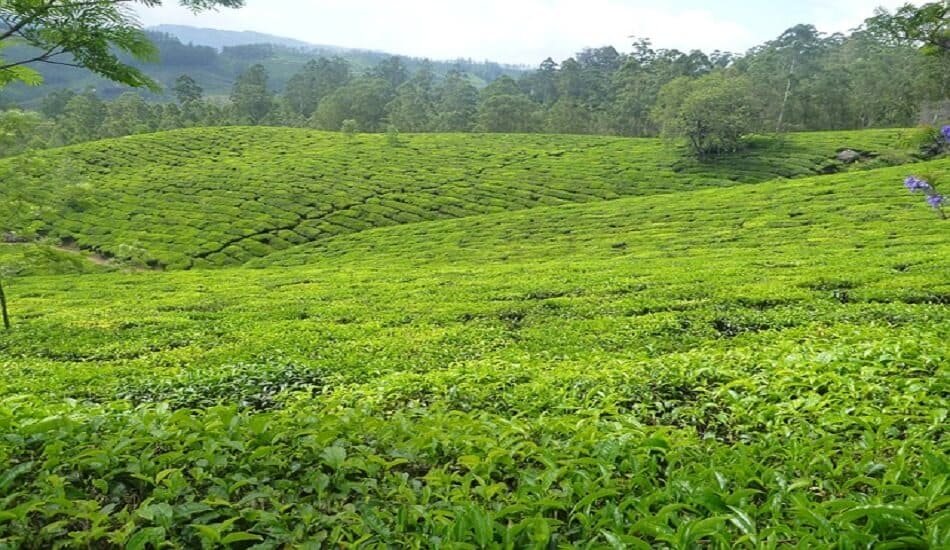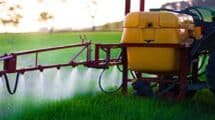Banned insecticide dimethoate sparked debate over its approval by CIB
A debate has erupted in the Indian tea industry over the Central Insecticide Board’s (CIB) approval of the use of dimethoate, which was banned by the CIB in 2020, to combat the tea mosquito bug (Helopeltis theivora) in tea plantations.
According to the minutes of the 446th meeting of the CIB’s Registration Committee (RC) (CIB-RC), an ad hoc approval for the use of dimethoate, a highly toxic organophosphorus compound, to combat the spread of the tea mosquito bug has been granted for one year.
Also Read | Banning of 27 pesticides decision by Union Agriculture Ministry likely this week
However, the committee has directed the industry to submit residue data, which will be reviewed by the relevant technical experts to justify the continued use.
The decision to allow the controversial chemical comes amid concerns that India’s tea production will suffer significantly as a result of a sharp increase in the incidences of major pests such as the tea mosquito bug (Helopeltis theivora) and the Looper Caterpillar.
The Tea Board of India supports the Tea Research Association’s (TRA) proposed integrated pest management strategy, which includes chemical and non-chemical methods as well as best agricultural practices.
According to estimates, approximately 147 million kg (mkg) of crop is lost each year, resulting in annual losses to the Indian tea industry of Rs. 2,865 crore. The CIB-RC allegedly approved the chemical at the request of a segment of the industry.
According to Saurav Pahari, Chairman of the Tea Board of India, the long-term sustainable solution to the problem would be to implement an integrated pest management strategy.
‘At the request of a segment of the tea industry, the CIB-RC has approved the use of this chemical for one year.’ There has been a significant amount of crop loss reported as a result of pest attacks. We have always supported TRA’s integrated pest management strategy and best agricultural practices. ‘We send out advisories on a regular basis through our field officers,’ Pahari told BusinessLine.
Industry is concerned
A segment of the industry has expressed concern about the use of dimethoate and its impact on the environment and humans.
Going back to the use of a pesticide that was banned in 2020, according to PK Bezbaruah, former Chairman of the Tea Board, would be regressive. To address the pest issue, the industry should work toward adopting best cultural practices such as regular pruning of bushes, increasing the nutrition status of bushes, and so on.
‘Trying to control pests completely would be disastrous for the environment.’ One must accept that some crop will be lost due to environmental factors during production. ‘It is our responsibility as scientific agriculturists to minimize this while ensuring that there is less harm to the environment and to the people who consume the product,’ he said.
One solution for dealing with the pest attack would be to start plucking early. However, this would necessitate a sufficient number of people plucking leaves. However, because there aren’t enough people in some gardens, particularly in south India, the plucking cycle is fairly long, according to N Lakshmanan, a senior planter in a south Indian estate. To solve the problem, he believes the industry should use machine plucking or robotic plucking.
However, some planters believe that as long as the time interval between plucking and spraying the pesticide is maintained, there should be no problem, and the industry should be allowed to use certain chemicals to combat the growing menace and virulence of some pests. ‘It should be understood that nobody will use chemicals unless we are forced to because they are expensive and have a high application/spraying cost.’ However, such chemicals are sometimes required to break the cycle of attacks,’ said Vikram Singh Gulia, MD & CEO of Amalgamated Plantations.
Allow new-generation chemicals
Rising temperatures and prolonged rainless periods caused by climate change have created ideal conditions in North India estates such as Assam and West Bengal for large-scale pest and disease attacks in tea plantations.
Over the last two decades, the cost of plant protection in tea plantations in north India has risen dramatically, reaching as much as Rs 25,000-30,000 per hectare. According to TRA, this has had a negative impact on the viability of operations, resulting in lower exports and global competitiveness.
The Indian tea industry employs pesticides approved by the CIB, as well as the Tea Board of India’s Plant Protection Code and Good Agricultural Practices listed by the Tea Research Association. ‘Currently, the CIB’s RC has approved only seven pesticides for use in India, making it difficult for tea growers to effectively control tea mosquito bugs and tea looper.’ The availability of a limited number of chemicals has resulted in pest populations developing resistance. Furthermore, due to the revision of MRLs in the EU, there are restrictions on the use of pesticides in tea, creating barriers to trade or processed teas from India to the EU,’ TRA stated.
Also Read | Standing Committee dismissed pesticides company’s demand on three key issues
For both pests, TRA Tocklai has recommended an integrated pest management strategy that includes both chemical and non-chemical methods. Plant protection scientists at TRA have been testing several new molecules/pesticides against major pests using products available from Indian pesticide manufacturers, and have submitted bio-efficacy and residue studies to the CIB’s RC via the manufacturers. ‘We have been requesting (permission to use) new generation chemicals, which are essentially green molecules.’ ‘We proposed four such chemicals, one of which has already been approved, and the remaining is expected to be approved within the next two to three months,’ said Joydeep Phukan, Secretary of the TRA.


















Add Comment